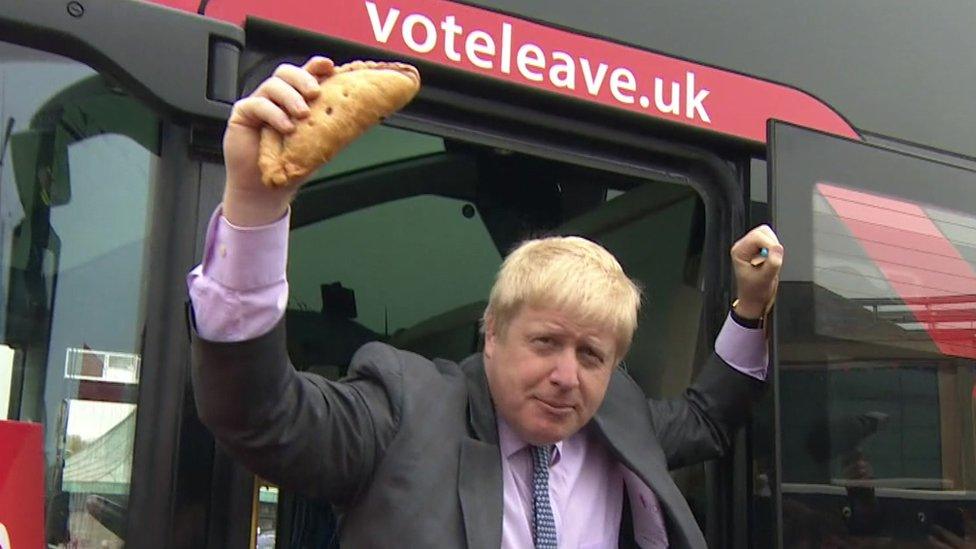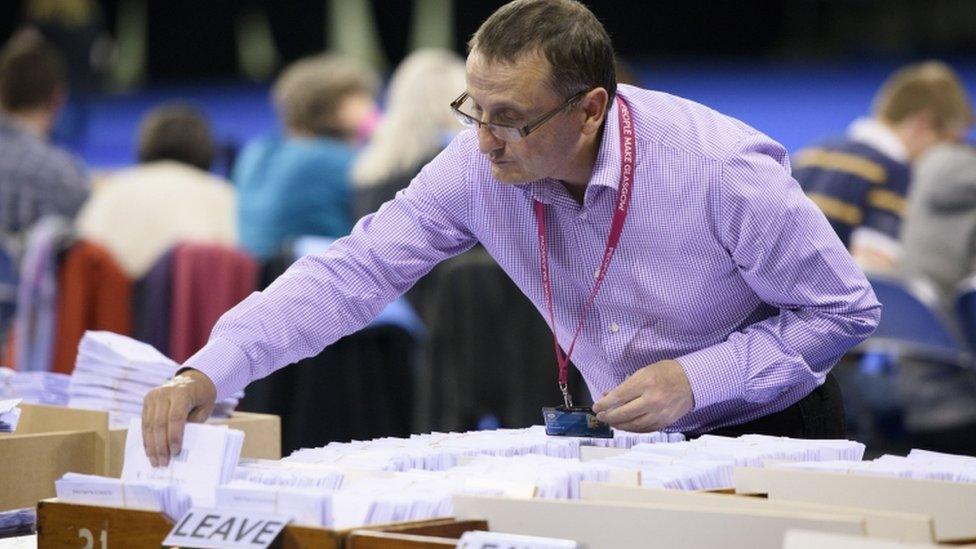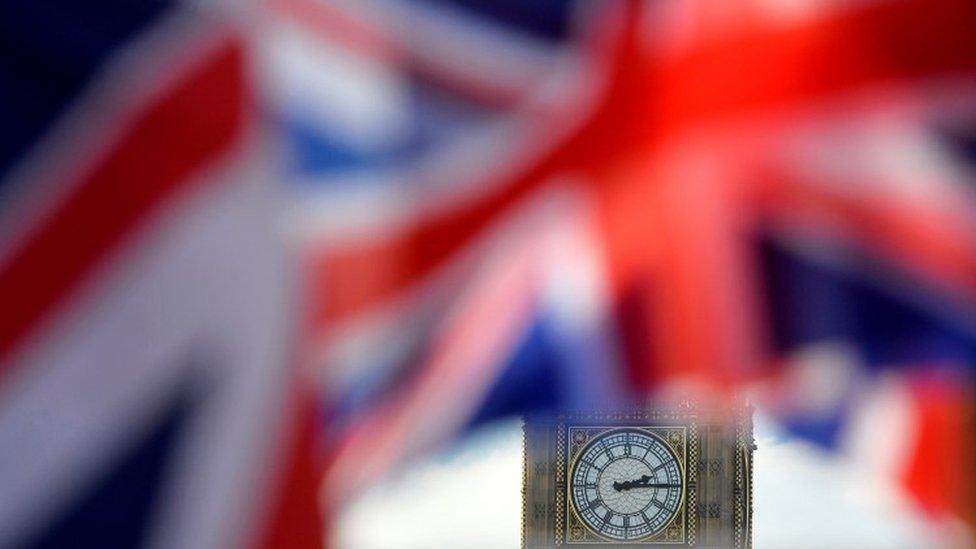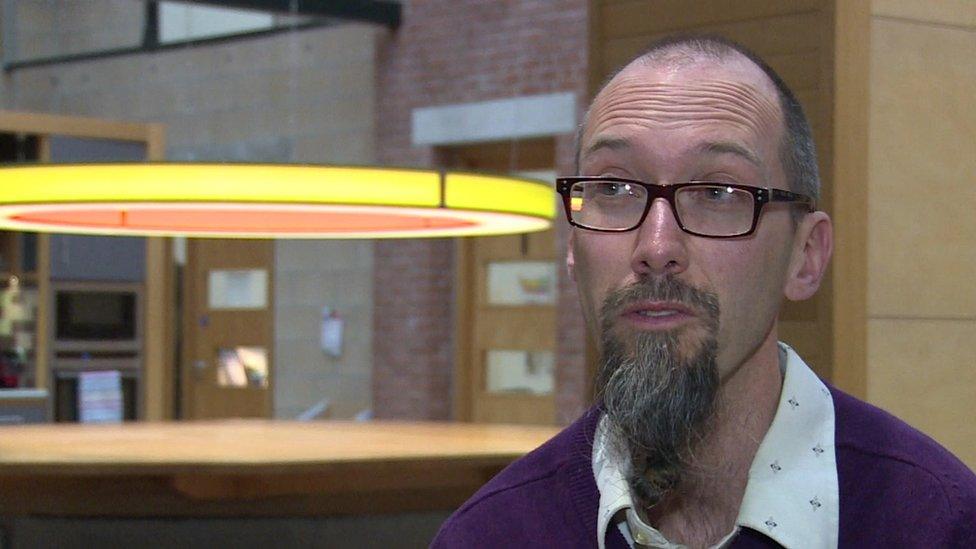EU Referendum: Cornwall plea to replace EU millions
- Published

Boris Johnson brandished a pasty when he launched the battle-bus in Truro, Cornwall
The government must replace the millions of pounds of EU support Cornwall may lose from Brexit with investment, its council leader says.
The county has received £1bn of aid over the past 15 years with more than £400m in the pipeline until 2020 because of its relatively weak economy.
Cornwall Council leader John Pollard said he wanted "investment equal to that provided by the EU programme".
Cornwall voted Leave and the Isles of Scilly voted Remain.
The breakdown of voting saw:
Cornwall vote 182,665 for Leave and 140,540 for Remain
The Isles of Scilly vote 803 for Remain and 621 for Leave
Cornwall's EU millions
The county receives the most money in England
-
£400m of EU funding between 2000 and 2006
-
£500m of EU funding between 2007 and 2013
-
£416m of further funding coming between 2014 and 2020
Tim Jones, from the Heart of the South West Local Enterprise Partnership said: "The French are major investors in our part of the world, EDF Energy, china clay, Brittany Ferries.
"The European partnership is crucial to the South West. I can't make any judgement here that's going to be beneficial, short or long-term, in a business context.
"The community may have spoken but the business community is still the wealth creating vehicle and we have got to find a way through this."
Cornwall businesswoman Melanie Evans said she was "absolutely delighted" at the result.
"The EU money has been spent unwisely in places on projects that have gone bankrupt and we now have the opportunity to take control of that funding," she said.
"We are in a deprived status and we have remained in deprived status even though that funding was coming in so it shows it hasn't worked."

Analysis: Tamsin Melville, BBC SW Political Reporter

The people of Cornwall have voted to leave the EU - proof perhaps that money can't buy love.
While Britain as a whole has paid to be part of the EU, Cornwall is in the unusual position of being a net beneficiary.
Despite the huge investment in projects like the Combined Universities in Penryn, the Eden Project and Cornwall Airport Newquay, along with Superfast broadband - many people simply do not think they have felt any benefit.
And some say the fact that Cornwall still qualifies for this extra funding is an indication it hasn't sparked the growth intended.
Remain campaigners have warned Cornwall has always fared badly from Westminster and are not confident of future support of the scale seen from the EU.
But with five out of six Cornish MP's backing Leave during this campaign perhaps this vote here isn't surprising.

Eric Nicholls, Chairman of Cornwall Manufacturers' Group, said: "Whether Cornwall will continue to receive its EU funding is far from certain, as are the pledges from the Remain side that this would be met from central government."
Sarah Newton, Conservative MP for Truro and Falmouth, who voted Remain, said she wanted to "make sure the money gets into Cornwall so we can carry on making progress in getting well-paid jobs".
Cllr Tim Dwelly, leader of the Labour Group at Cornwall Council, said: "This is a disaster for Cornwall. Years of special EU funding for Cornwall are going to end.
"That funding has given us fibre broadband, a university, superb sixth form colleges, dual carriageways, airport investment, rail improvement, support for farmers and all kinds of business."
Chris Pomfret, former Cornwall and Isles of Scilly Local Enterprise Partnership chairman, and now chairman of governors at Falmouth University said: "I'm worried there will be turmoil that could go on for years."
William Arnold tweeted, external: "It's Ok though we can carry on being serfs in a theme park for second home owners and their children."
A Department for Communities and Local Government spokesman said: "It is important to understand that there will be no immediate changes.
"We must now prepare for a negotiation to exit the EU that will ensure the interests of all parts of the United Kingdom are protected and advanced."
- Published24 June 2016

- Published30 December 2020

- Published29 April 2016

- Published29 June 2016

- Published22 February 2016

- Published22 January 2016
